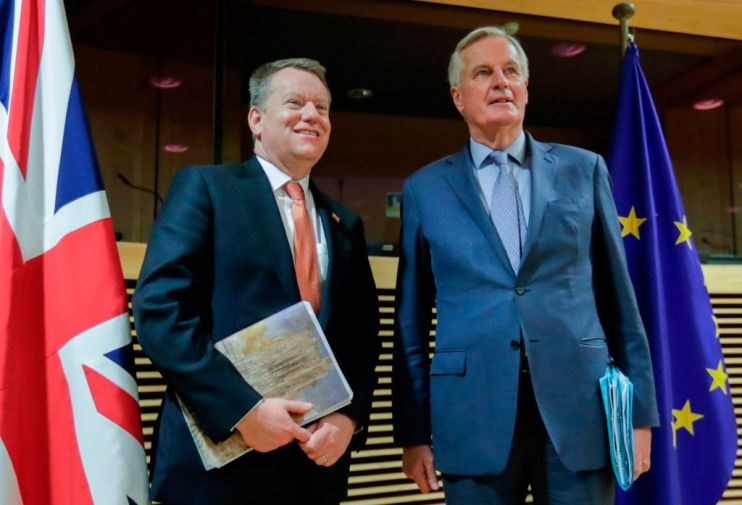‘No significant progress’ in latest round of UK-EU Brexit trade talks

The latest round of UK-EU trade talks have shown no progress on major areas of contention, according to Brussels’ chief negotiator.
The fourth round of talks concluded this morning, bringing both sides to a break in negotiations to assess progress.
Prime Minister Boris Johnson and EU Commission President Ursula von der Leyen will meet at an as yet to be confirmed date this month in an attempt to bridge gaps in the two sides’ mandates.
Chief EU negotiator Michel Barnier said there was “no significant areas of progress” on key areas, such as fishing policy, business competition regulations and overall governance of the deal.
“There have not been significant progress on these points since the start of negotiations,” Barnier said.
“All we’re asking for is the political declaration to be respected and complied with.
“We don’t think we can go on like this forever.”
UK chief negotiator David Frost said that progress was “limited” and that there needed to be fundamental change in how the negotiating rounds were conducted.
The last three rounds have been conducted over video conference during the coronavirus lockdown.
“We are close to reaching the limits of what we can achieve through the format of remote formal rounds,” Frost said.
“If we are to make progress, it is clear that we must intensify and accelerate our work. We are discussing with the Commission how this can best be done.”
Barnier also hit out at Johnson and the UK government for allegedly breaking the political declaration, which set the parameters of a future trade deal.
However, a source close to the UK negotiating team said that Barnier and his team were misinterpreting the role of the political declaration.
“We’re committed to the political declaration, but we see it as guiding parameters – it is not a treaty,” they said.
“In my dictionary means parameters means limits, it doesn’t require us to agree to everything in it.”
The two biggest areas of contention in trade talks have been EU access to UK fishing waters and the so-called level playing field for business regulations.
EU member states are asking to retain the same access to UK fishing waters as they had when Britain was a member of the EU.
Frost has ruled this out as a “non-runner”, with the UK instead trying to negotiate a “zonal” agreement that can be re-negotiated on a regular basis.
Brussels is also asking that the UK mirrors EU regulations on things like labour laws, environmental protection and state aid to the private sector.
In return for this level playing field, Brussels will continue to trade with the UK on a zero-tariff basis.
The UK is fundamentally against a broad-ranging matching of regulations, with the government saying on many occasions that it will not be a rule-taker now Britain is out of the EU.
Barnier said that there were still large gaps between both sides on these two areas.
If a trade deal is not ratified by 31 December, then trade barriers and tariffs will automatically be implemented between the UK and EU.
“On fisheries the UK has not shown any true will to explore other approahces beyond zonal attachment of the sharing of quotas,” Barnier said.
“They continue to condition access to waters to an annual negotiation which is not possible for us, not even technically possible.
“Economic fair play, trade fair play – no progress there either. We tried to focus on subjects in particular we thought were closing to reaching agreement on things like the non-regression mechanisms when it comes to social, environmental, tax and fiscal matters and sustainable development.”
A source close to Frost said the UK’s negotiating team need to see more progress on talks before autumn or else they will walk away and prepare for no-deal.
The source said that EU negotiators need to be more flexible in their approach if a deal is to be struck.
“At the moment, one option is the treaty the EU propose – zero tariffs, zero quotas and a massive level playing field commitment,” they said.
“The other alternative is no agreement at all. There are different possibilities between those two extremes and we need to find them.”